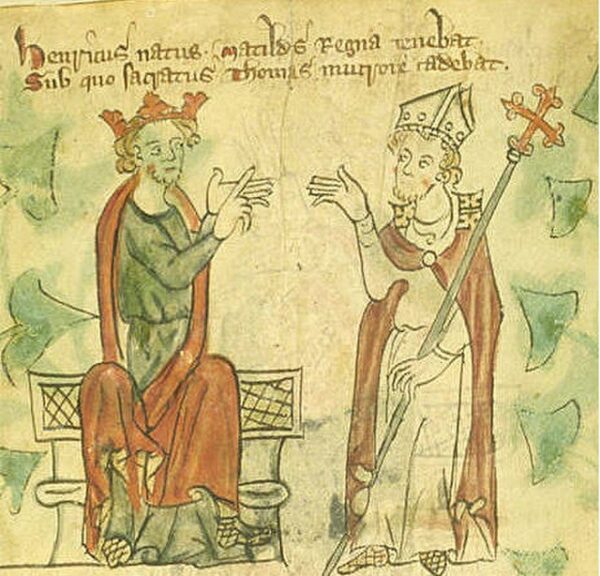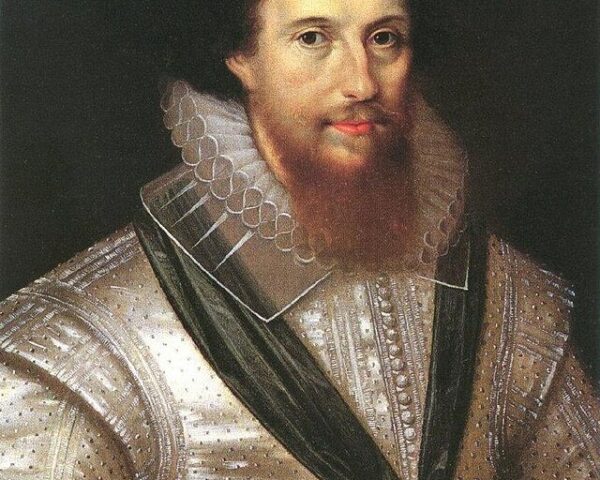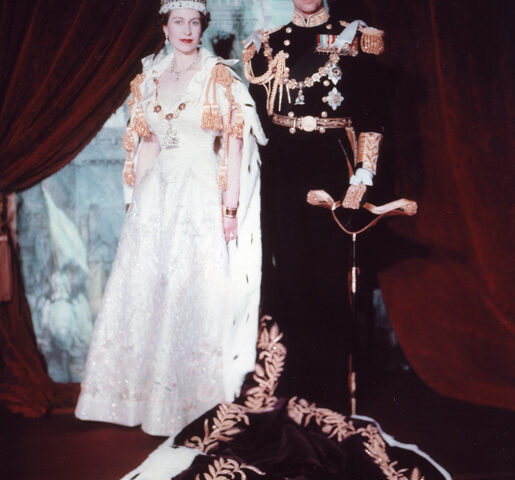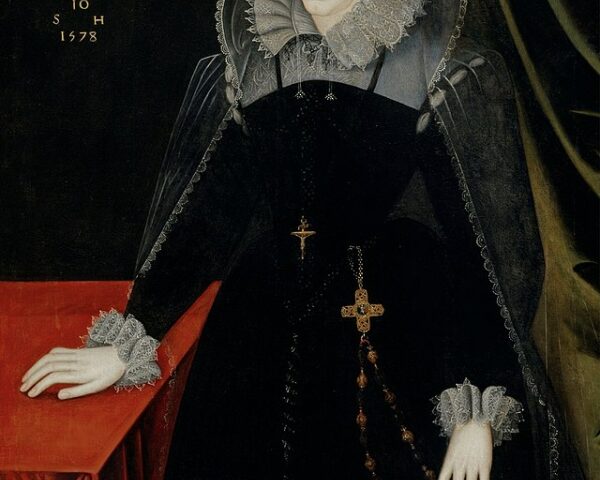Thomas Becket’s ascent to the pinnacle of English ecclesiastical power and subsequent assassination is a tale that profoundly shaped the historical landscape of church-state relations across Europe, but especially in Great Britain. Initially serving as a trusted confidant and Chancellor to King Henry II, Becket’s appointment as the Archbishop of Canterbury in 1162 marked the beginning of a dramatic shift in his relationship with the crown. Once a staunch advocate for royal authority, Becket underwent a personal and spiritual transformation, embracing his role as the spiritual leader of England with rigorous devotion and an austere lifestyle.
The newfound fervor with which Becket defended the autonomy of the church brought him into direct conflict with King Henry II’s ambitions to consolidate power over the clergy. This clash of wills was epitomized by the Constitutions of Clarendon, a set of legislative procedures that sought to diminish ecclesiastical privileges and bring the church under the king’s control. Becket’s steadfast opposition to these measures led to a protracted and acrimonious dispute that would define his tenure as archbishop.
Fearing for his safety amidst the escalating tension, Becket sought refuge in France in 1164. His six-year exile was marked by continued resistance to the king’s encroachments on church prerogatives, despite several attempts at reconciliation. The eventual, albeit tenuous, truce allowed Becket to return to England in 1170. However, the peace was short-lived; Becket’s subsequent excommunication of bishops loyal to Henry II reignited the conflict.
The situation reached its tragic denouement when Henry II’s exasperated outburst—allegedly misinterpreted by four of his knights as a royal directive—led them to Canterbury with the intent to confront the archbishop. The confrontation turned deadly on December 29, 1170, when the knights slew Becket inside the hallowed walls of Canterbury Cathedral. The murder sent shockwaves through Christendom and transformed Becket into a martyr, with his tomb becoming a revered pilgrimage destination.
The repercussions of Becket’s assassination were manifold, casting a long shadow over Henry II’s reign. The king found himself compelled to perform public penance and make concessions to the church to mitigate the fallout from his perceived complicity in the crime. The incident stands as a stark and enduring symbol of the perennial struggle between ecclesiastical and secular powers.






